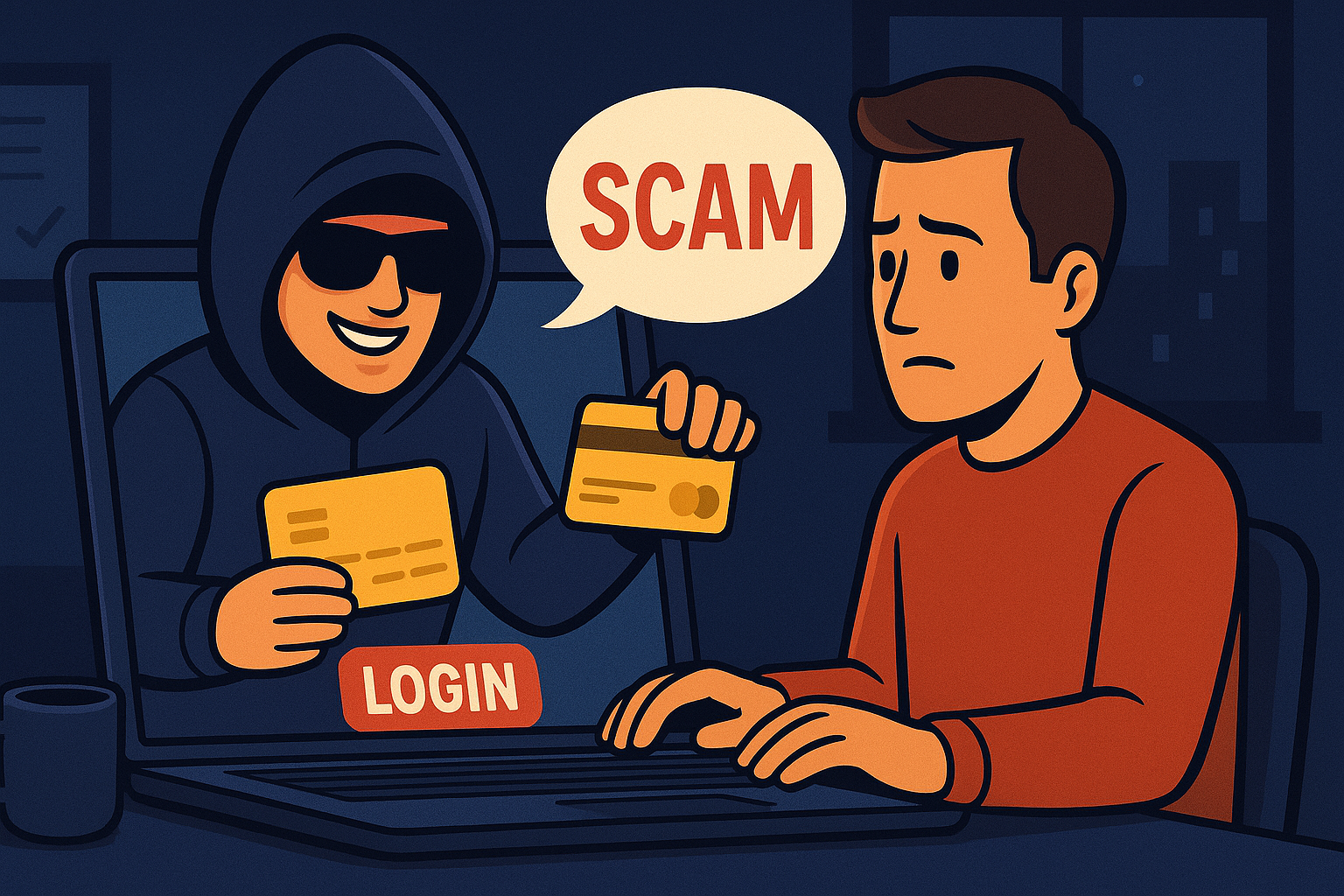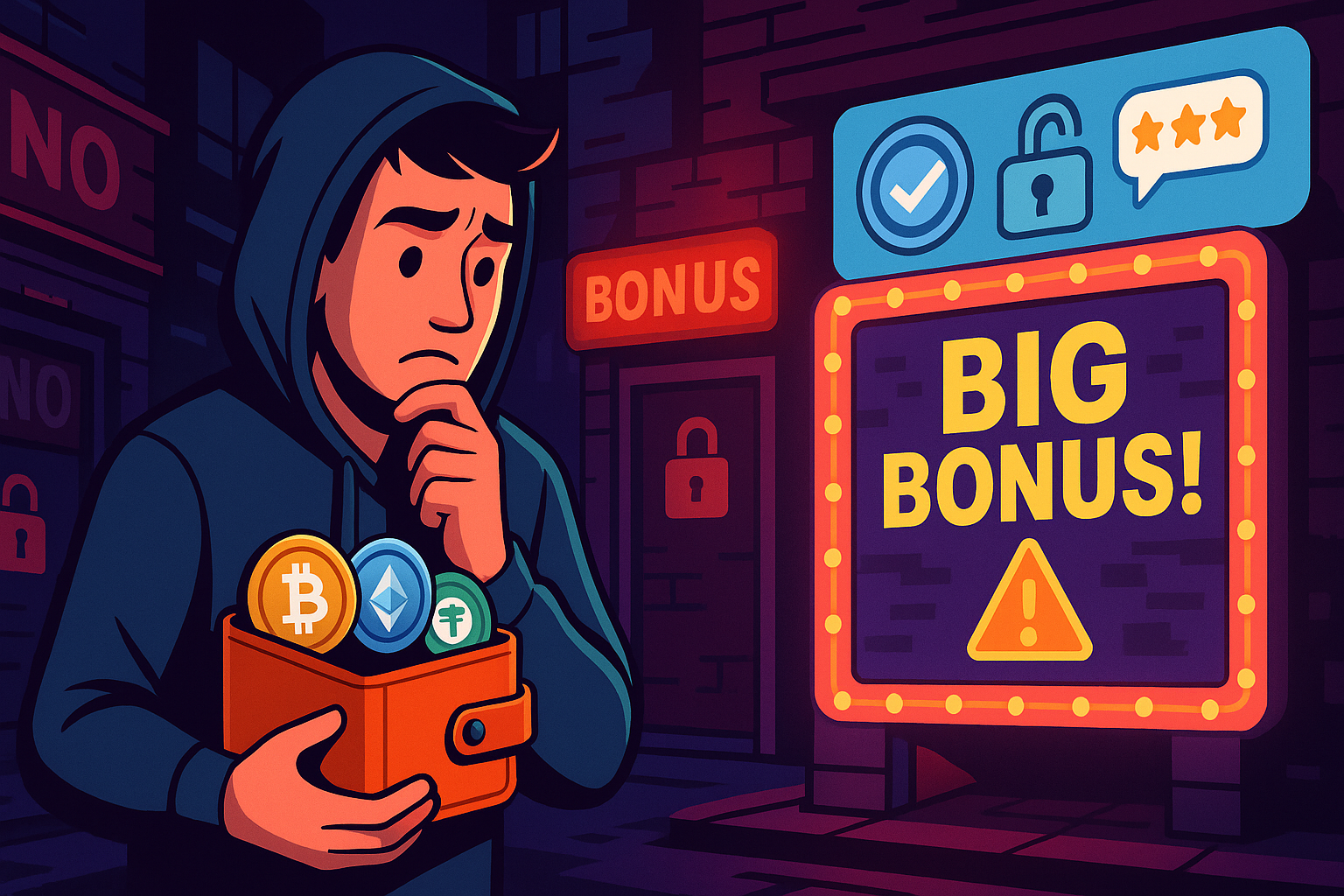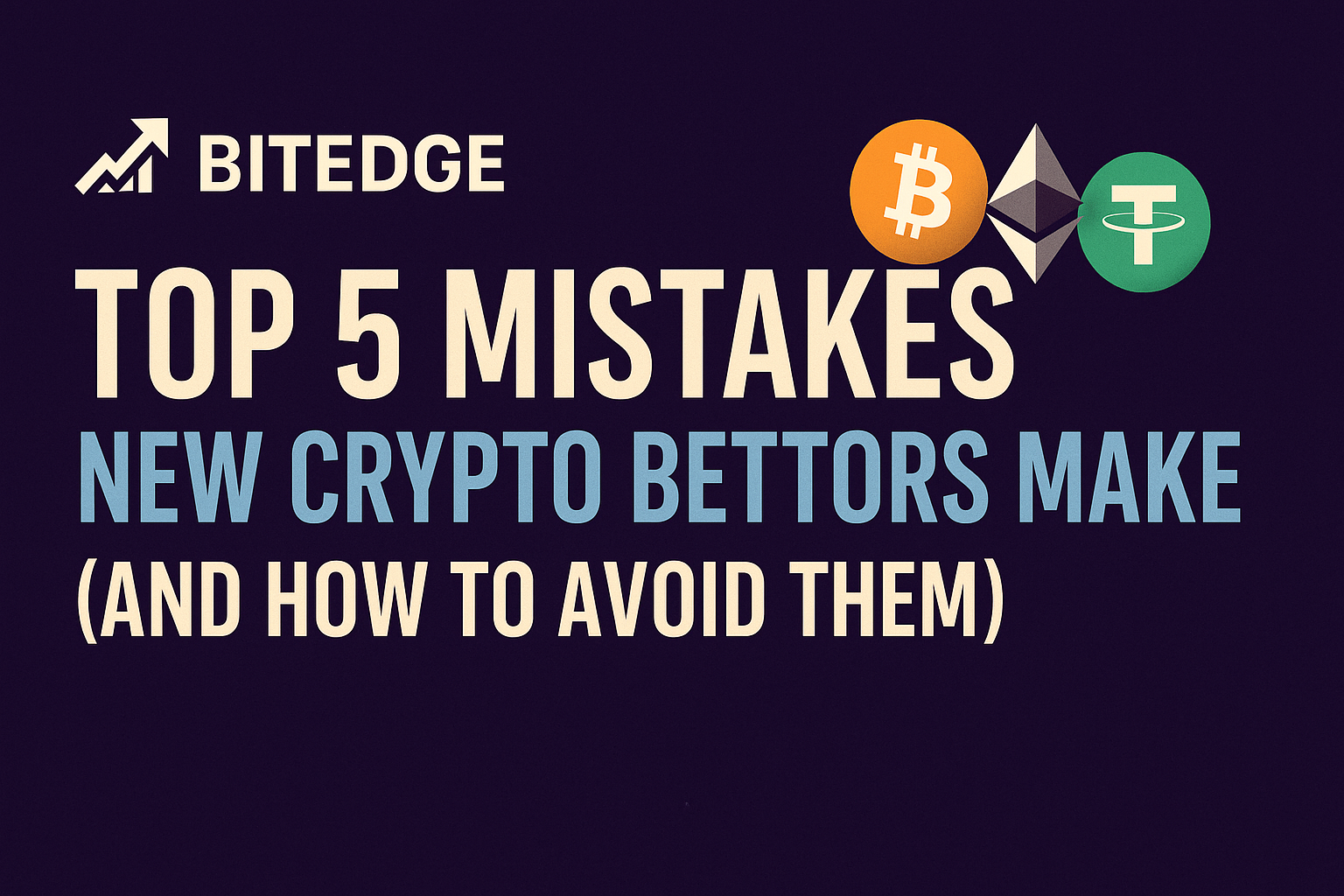Crypto sports betting and casino play can be thrilling, fast-paced, and, when done right, profitable. But for every success story, there's a trail of crushed dreams, misplaced bets, and digital coins lost to the void. And many times, it’s more about mistakes you could have avoided rather than bad luck.
So before you dive into the blockchain betting pool, let’s unpack the five biggest missteps new crypto bettors make, and, more importantly, how you can dodge them like a pro.
Choosing the Wrong Platform
Just like you wouldn’t hand over your life savings to a shady guy in a dark alley with a cardboard sign that says “Trust Me”, why do so many new crypto bettors throw coins at sketchy gambling sites with no license, no oversight, and no accountability? There’s no shortage of platforms that look legit, promise huge bonuses, and then disappear just as fast. These digital ghosts prey on inexperience.
What goes wrong:
- Funds can be locked with no withdrawals.
- Bonuses come with fine print so twisted it could be a Stephen King novel.
- No support, no recourse, no happy ending.
How to avoid it:
- Stick to the best cryptocurrency gambling sites with verified licenses, transparent terms, and positive reviews from real users.
- Look for platforms that support secure wallets, 2FA, and responsible gambling tools.
Don’t get blinded by flashy designs and giant banners screaming outrageous bonuses. If it smells too sweet, it’s probably hiding something sour.
Treating Crypto Like Cash
Cryptocurrency isn’t cash. It’s not your debit card. This is a whole different beast with its own rules, rhythms, and risks.
Here’s the trap: many first-time bettors assume that once they’ve converted their dollars into Bitcoin or USDT, they can treat it like fiat. Bet, win, withdraw, repeat. However, this isn’t the case.
What goes wrong:
- Ignoring volatility. You bet with $100 worth of BTC. You win. But by the time you cash out, BTC has dropped and your winnings are now worth $78.
- Forgetting fees. Blockchain networks like Ethereum or Bitcoin charge transaction fees. Sometimes they’re tiny. Other times they’re large.
- Thinking it’s reversible. Did you send crypto to the wrong address? There’s no customer support line to cry to.
How to avoid it:
- Start with stablecoins (like USDT or USDC) to eliminate volatility surprises
- Learn your network fees. Want cheap transactions? Use blockchains like Tron or BNB Chain.
- Triple-check addresses before sending any crypto. One wrong character and your funds are toast.
Understand the playground before you bring your lunch money.

Going All In on One Coin
New bettors often get caught up in crypto hype culture. A Reddit thread says Dogecoin is the future, so you convert your bankroll into it. Twitter insists Shiba Inu is going to the moon, so you go all in.
It’s fun to believe the hype, until your favorite meme coin drops 40% overnight and takes your bets with it.
What goes wrong:
- Your betting bankroll becomes a speculative investment.
- You can’t make bets because the platform doesn’t accept your exotic coin.
- Your emotions ride the crypto rollercoaster and you make impulsive, irrational decisions.
How to avoid it:
- Keep your betting bankroll separate from your crypto investments.
- Use coins accepted by your chosen platform. Most solid betting sites support BTC, ETH, LTC, and stablecoins like USDT.
- Resist the urge to follow trends without doing actual research.
Diversify if you must but when it comes to betting, go with coins that hold their ground and are widely supported.
Ignoring Wallet Security
You wouldn’t leave your wallet on a park bench and walk away. Yet many new bettors do the digital equivalent by storing all their crypto on an exchange or betting site wallet with no backup and no protection.
Crypto doesn’t forgive. There’s no password reset link for your seed phrase. No hotline for stolen funds. Once it’s gone, it’s gone.
What goes wrong:
- Exchanges get hacked and funds vanish.
- You lose access to your account or forget your wallet password.
- Your PC or phone gets compromised.
How to avoid it:
- Use a non-custodial wallet (like MetaMask or Trust Wallet) to store your crypto safely.
- Write down your seed phrase. Store it somewhere secure and offline. Don’t screenshot it. Don’t email it.
- Enable two-factor authentication (2FA) on all accounts, especially betting sites and exchanges.
- Don’t store your entire bankroll on the platform. Withdraw winnings often and secure them in your own wallet.

Chasing Losses
When you lose a bet, you feel the sting. Your first instinct shouldn’t be to double the next bet to win. One bad streak and your entire crypto balance is gone. In crypto betting, emotion is the enemy. Combine gambling with fast-moving digital money, and you've got a recipe for disaster.
What goes wrong:
- No bankroll management.
- Increasing bet sizes after every loss to recover faster.
- Emotional decisions fueled by panic or desperation.
How to avoid it:
- To enjoy digital games safely and responsibly, set a clear budget before you start. Decide how much you can afford to lose and make it your cap.
- Use betting strategies to control your risk.
- Walk away when you're tilted. If your heart rate’s spiking and you’re muttering to yourself, it's time to log off.
- Track wins, losses, reasoning, and what worked.
Discipline separates winners from the wreckage in the crypto betting world.
Bonus Tip: Learn the Game Before You Bet on It
You’d be surprised how many people bet on sports or games they don’t understand, just because it’s trending or has good odds.
Instead:
- Watch a few games before betting on them.
- Read up on the teams, players, or structures.
- Follow expert breakdowns and prediction blogs, but form your own logic too.
Crypto betting is already high-stakes. Don't stack ignorance on top of risk.
Final Thoughts
Crypto betting isn't just gambling. It's tech, finance, psychology, and gaming, all mashed into a single high-voltage experience. And when you're new, it's easy to get overwhelmed. You don’t need to be a blockchain expert or a Wall Street wizard to avoid disaster. You just need to slow down, ask questions, and dodge the common traps that so many stumble into.




